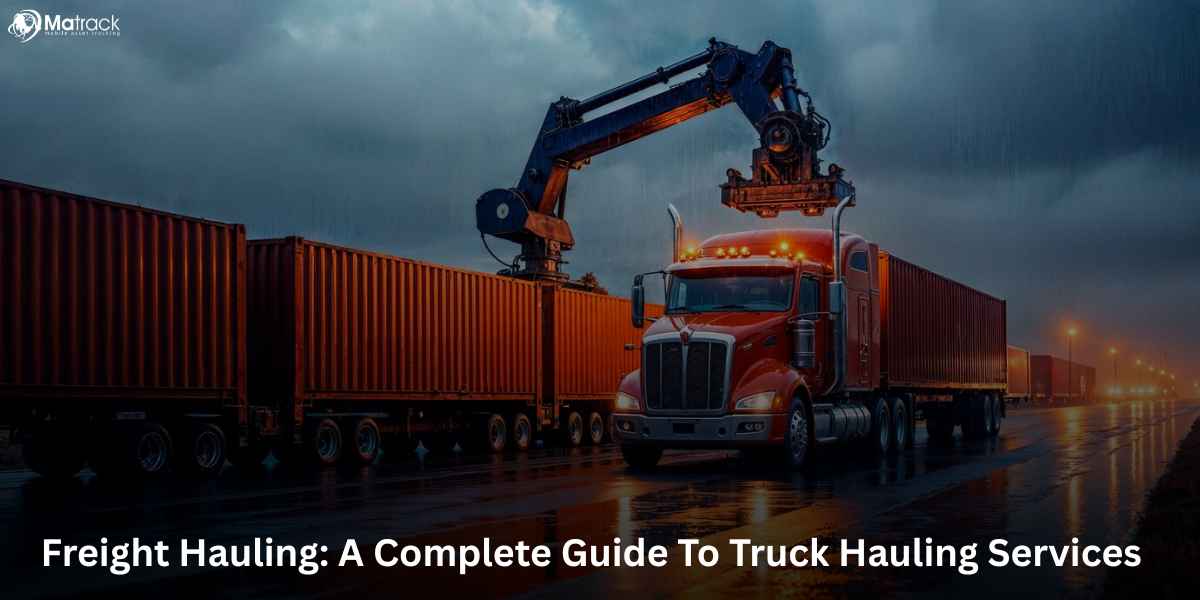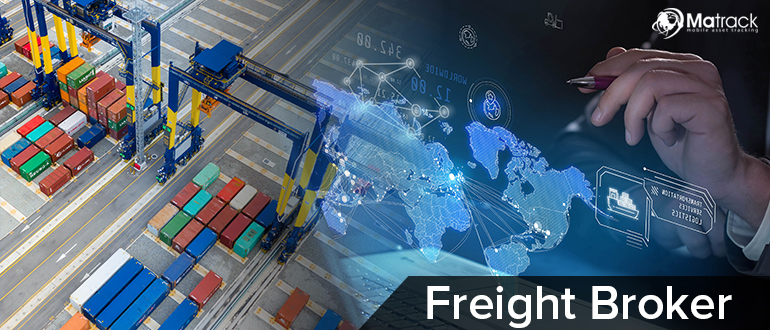Key Takeaways:
- Freight hauling moves goods safely and keeps supply chains running across short and long distances.
- The type of truck hauling service depends on the cargo’s size, weight, and delivery needs.
- Following the right process and choosing a trusted company ensures shipments stay legal, safe, and on time.
- Freight hauling rules and service choices together shape costs, routes, and delivery success.
What Is Freight Hauling?
Freight hauling means moving large amounts of goods using big trucks. These trucks handle both short local trips and longer journeys across states.
It helps deliver things like machinery, raw materials, and everyday products safely and on time. The type of hauling service usually depends on what’s being moved and where it’s going.
Types of Freight Hauling Services
Freight hauling services offer different options depending on the size, weight, and transport needs of the cargo. Each type is designed to handle specific goods in the safest and most efficient way.
Full Truckload (FTL)
Full truckload hauling moves cargo that takes up the entire space of a truck. This service works best for large shipments that need direct delivery with no extra stops or handling.
Less Than Truckload (LTL)
Less than truckload hauling combines smaller shipments from different customers into one truck. This option helps save space and reduce costs for goods that don’t fill a full truck.
Flatbed Hauling
Flatbed hauling uses open trailers to move items that are oversized or have unusual shapes. It is often used for machinery, building materials, and heavy equipment that can’t fit inside a standard trailer.
Refrigerated Hauling
Refrigerated hauling keeps goods at a set temperature during transport. This service is important for industries that move food, medicine, and chemicals that must stay fresh or stable.
Heavy Haul Trucking
Heavy haul trucking is for oversized or very heavy loads that need special equipment and extra permits. These shipments often require escorts and strict safety checks along the way.
The type of freight service often shapes the kind of truck hauling services a company offers, making it easier to match the right truck to the right job.
Common Types of Freight Moved in Truck Hauling Services
Truck hauling moves a wide range of goods that support industries across the country. The type of freight often depends on what’s being transported, where it’s going, and what the cargo requires during the trip.
Building materials
Steel beams, lumber, and concrete panels are common freight in construction. These materials often need strong flatbed trucks or specialized trailers to handle their size and weight safely.
Machinery and equipment
Large machines like excavators, generators, and industrial presses rely on truck hauling to reach factories, farms, and construction sites. These shipments often need heavy-duty trucks that can manage oversized or heavy loads without delays.
Consumer products
Everyday goods such as packaged foods, electronics, and furniture move by truck to keep stores stocked and customers supplied. These shipments often use dry vans or refrigerated trucks depending on the product’s needs.
Agricultural products
Crops like grains, fresh produce, and livestock feed travel from farms to markets and food processors by truck. Temperature control and careful handling are often important to protect freshness and quality during the trip.
Hazardous materials
Chemicals, fuels, and industrial waste require truck hauling with extra safety steps in place. These shipments follow strict rules for handling, permits, and driver training to protect people and the environment.
Wide range of freight highlights the key features of truck hauling services that make these shipments possible.
Key Features of Truck Hauling Services
Truck hauling services stand out because they combine reliability with practical solutions. Each feature plays a direct role in helping goods reach their destinations efficiently.
Timeliness
On-time delivery is a key promise of truck hauling. It keeps supply chains steady and helps businesses meet customer demands without delays.
Flexibility
Truck hauling handles many types of cargo and delivery routes. Whether it’s a short city trip or a cross-country haul, services adjust to fit the job.
Capacity
Truck hauling can handle everything from single pallets to full loads. This means companies can ship what they need without worrying about size limits.
Safety
Protecting freight and drivers is at the core of truck hauling. Services follow all safety and legal rules to keep shipments secure from start to finish.
Cost-efficiency
Every load is planned to make the best use of space and fuel. This careful approach helps keep shipping costs as low as possible.
These features set the stage for understanding how freight hauling works from booking to delivery.
How Freight Hauling Works?
Freight hauling follows a clear process to move goods safely and on time. Each step helps match the right service to the cargo and keeps deliveries running smoothly.
Determine cargo specifications
It starts with knowing the weight, size, and type of cargo. Special needs, like temperature control or added security, are noted at this stage.
Choose the right hauling service
Next, the right truck and service are selected. This could mean using full truckload, less than truckload, flatbed, refrigerated, or heavy haul options depending on the load.
Schedule pickup and delivery
Pickup and delivery points are set along with the timeline. Clear plans help avoid delays and keep shipments on track.
Prepare documentation
Shipping documents, permits, and insurance papers are completed. This step keeps everything legal and protected during the trip.
Monitor transport progress
While on the road, GPS tracking and updates help follow the shipment’s journey. Any issues can be spotted early to keep things moving.
Receive and inspect cargo
At delivery, the cargo is checked to make sure everything arrived safely and as expected. A final inspection confirms the job is done right.
Following these steps helps explain why freight hauling is so important for keeping goods moving reliably across supply chains and industries.
Why Freight Hauling Is Important?
Freight hauling keeps goods moving from factories and farms to stores, warehouses, and customers. It helps supply chains run smoothly so people and businesses get what they need on time.
This service supports many industries by making sure materials and products reach the right place. Without freight hauling, production would slow down and deliveries would face big delays.
Moving freight safely and by the rules is a big part of the job. That’s why freight hauling regulations are in place to guide how goods are transported across roads.
Freight Hauling Regulations
Freight hauling follows clear rules that control how trucks operate during transport. These regulations protect cargo, drivers, and roads.
Weight limits
Weight limits control the maximum load trucks can carry under federal and state law. These limits reduce road damage and prevent accidents from overloaded vehicles.
Permitting
Permits are required for oversized and hazardous loads. Permitting ensures these shipments follow approved routes with safety escorts when needed.
Driver hours
Driver hours are restricted by federal hours-of-service laws. These limits prevent fatigue and lower the risk of crashes during long trips.
Equipment standards
Truck equipment must meet safety and emissions standards at all times. Regular inspections confirm trucks stay in good working condition.
Insurance requirements
Freight carriers must carry insurance to cover cargo loss, damage, or accidents. Insurance protects businesses, drivers, and customers during every shipment.
These regulations affect freight hauling costs because they add requirements that influence pricing, routes, and delivery timelines.
How to Choose a Freight Hauling Company
Choosing the right freight hauling company ensures safe, reliable, and cost-effective transport. The right company will match your cargo needs and follow all legal standards.
Verify licensing and insurance
A freight hauling company must hold valid federal and state licenses. The company must carry proper insurance to cover cargo loss, damage, or accidents during transport.
Assess equipment capabilities
The company must have trucks that match your cargo type and size. Equipment should be suited for your shipment, whether it needs flatbeds, refrigerated trailers, or heavy-haul trucks.
Review safety record
Check the company’s safety record and accident history. A strong safety record shows the company follows rules and protects cargo on the road.
Compare pricing
Request clear, itemized quotes for your shipment. Transparent pricing helps you understand costs and avoid hidden fees.
Check customer reviews
Read reviews that focus on reliability, communication, and service quality. Customer feedback gives insight into how the company handles real shipments.
Conclusion
Freight hauling keeps supply chains running by moving goods safely, on time, and where they are needed most. From building materials to food and machinery, it helps industries deliver what keeps businesses and communities going.
The right truck hauling service makes a big difference in cost, safety, and delivery success. Choosing a trusted company and following the rules ensures every shipment reaches its destination without delays or problems.



